How Much Does Dental Work Cost in New Zealand? 2024 Rates
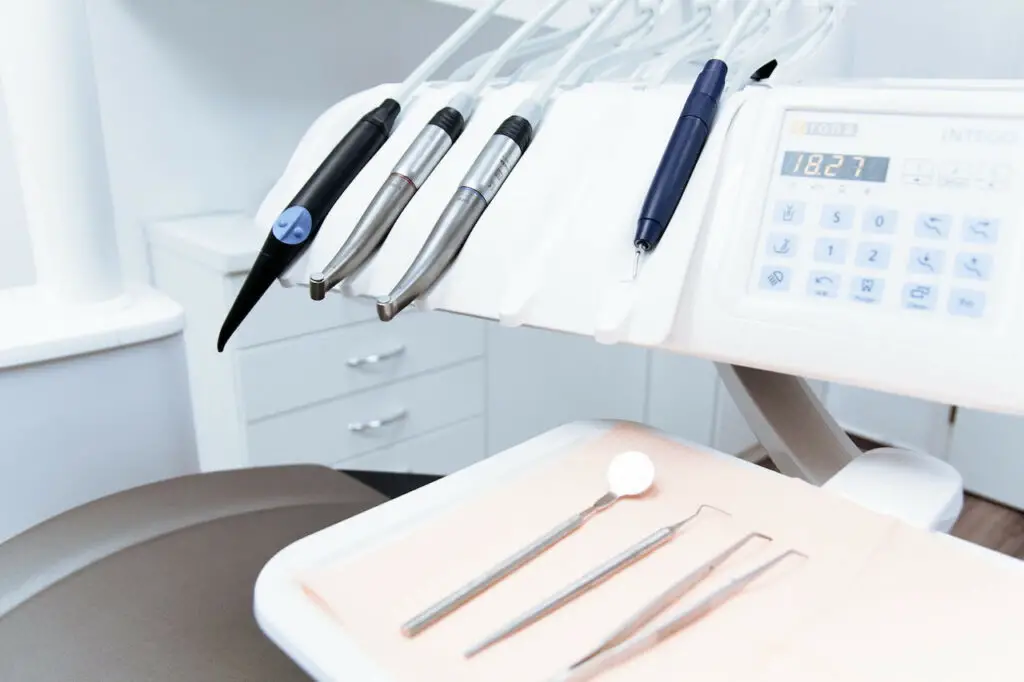
Dental care in New Zealand is as expensive as in many other nations in the West, yet, it’s cheaper than in the US. Besides, the government doesn’t fund dental work as it’s with other medical services. The high cost of even a routine check-up stands in the way of New Zealanders obtaining the basic dental care they require, where 87% of Kiwis skip a dentist because of the cost.
In New Zealand, children have the entitlement to free dental care until they are 18 years old, while adults must pay the entire cost of treatment. Here’s a quick overview of dental procedure’s prices in New Zealand for a better understanding:
- Consultation and check-up: $59 to $120
- X-ray: $30 to $85
- Cleaning: $117 to $250
- Filling (white):
- Simple: $225 – $366
- Complex: $430 – $600
- Dentures: $800 to $3,200
- Root canal treatment: $975 – $1,400
- Extractions, including wisdom teeth: $200 – $500
- Crowns, Inlays & Veneers: $1,332 to $1,950
- Implants: $3,000 to $7,999
- Implant crown: from $2,800
- Bridges 3 unit: from $3,740, or $1,400 to $2,195 per tooth
- Full Fixed Braces: $5,000 – $9,950
- Retainer (per arch): $300
Going to the dentist is a luxury that not everyone can afford. In fact, according to a recent Otago Daily Times poll, 87% of Kiwis put off dental care owing to the expense. This happens because, in contrast to other medical treatments, dental work isn’t covered by the public healthcare scheme.
In this article, we explore how much you can expect to pay when visiting a dentist in New Zealand. The prices will be pretty much similar for someone with a Kiwi passport/residency or a tourist. We explain more in detail on costs, dental insurance, how to budget, and dental rates in alternative countries for dental work.
How much does it cost to visit a dentist in New Zealand?
According to the most recent New Zealand Dental Association (NZDA) report, the median cost of a standard examination is $74, while many clinics offer a first-time consultation for $59. The cost of an x-ray ranges from $21 for an intraoral x-ray and $89 for an extraoral x-ray.
Dental care is free for children up to 18 years old, assuming they qualify for publicly funded healthcare.
Rates vary based on your location, with Auckland being the most expensive. Also, over the past few years, the prices have increased by over 12% nationwide.
The median cost for the amalgam filling (grey metal fillings) is $220, and for a composite filling (resin same as the colour of teeth) is $250. However, many clinics only use white composite filling in their practices.
If you require more complex procedures, the prices become higher, such as:
- root canal treatment starts at $975
- extraction will cost at least $200
- anterior bridge will cost around $3,700
- tooth implant will be roughly $2,800
- dentures will be approximately $2,750
How do you avoid paying high dentist bills?
It’s never a good day when you leave hundreds of dollars at the dentist’s office. It’s painful. Here are some recommendations on how to save on dental work or avoid it entirely.
- Regular dental hygiene: Prevention is key to reducing dental costs. Maintain a consistent oral hygiene routine by brushing, flossing, and using mouthwash regularly. This can help prevent more extensive and costly treatments down the line.
- Routine check-ups: Regular dental check-ups can catch issues early, preventing them from escalating into more expensive problems. Consider these check-ups as investments in your long-term oral health.
- Explore public services: New Zealand offers public dental services through District Health Boards (DHBs). These services are typically more affordable than private dental clinics. However, waiting times are quite long for non-urgent treatments. You can also get a benefit if you are a low-income household.
- Private dental insurance: If public services don’t meet your needs, consider private dental insurance. Research and compare different insurance plans to find the one that suits your budget and covers your anticipated needs.
- Payment plans: Some dental clinics offer flexible payment plans for major treatments. These plans allow you to spread out the cost over several months, making it more manageable.
- Second opinions: For major procedures, it’s wise to seek a second opinion. This can help you better understand the proposed treatment, its necessity, and its cost. It also provides an opportunity to compare prices between different dentists.
- Emergency fund: Include dental care in your emergency fund planning. Sudden dental issues can arise unexpectedly, and having funds set aside can alleviate financial stress.
Why are dental prices so high in New Zealand?
Prices are high for a variety of reasons like the ones listed below:
Heavy expenditure on technology:
The price of setting up and maintaining an Oral Surgery clinic raises the initial expenditures rapidly. The cutting-edge equipment includes:
- PIC Cameras
- I-CAT 3D scan technologies
- Digital implant processes
- Dental X-Ray machines
The expenditure of top-tier treatment is high due to the expense of the technology necessary to offer the service. Dental supplies are costly! There are few vendors, and they are not inexpensive at all.
High labour costs
New Zealand has comparably high salaries, especially for skilled personnel. So dental practices have a high overhead in labour expenses, which are then passed to the customer.
The average salary of a dentist in Auckland is $141,635. Across the country, dentists usually earn between $114,000 and $254,000. To achieve this paycheck, they have to charge patients high prices as they barely get any money from the government, unlike regular doctors in hospitals.
Lack of governmental subsidies
Beyond the age of 18, the government no longer pays for dental care. For the majority, oral healthcare does not get government support; hence, the patient’s initial expenditures are significantly greater.
In reality, New Zealanders spend NZ$1.8 billion on dentist visits each year. And nearly every penny of it, NZ$1.6 billion, comes straight from the purses of patients. Only NZ $242 million, or 15%, is covered by the government.
Expensive dentistry degree
Becoming a dentist requires a substantial amount of time, money, and commitment. A student loan for a dentist degree might be around NZ$150,000. Additionally, starting a practice is expensive as it costs almost NZ$500,000.
A New Zealand’s dentist shared that,
“People believe dentists are wealthy, but we aren’t. Last year, my pay before taxes, GST, and other expenditures was 148k. This is a good income, but there are many alternative careers that pay considerably more and are less scrutinized.”
There are a few other factors affecting dental costs like:
- Type of treatment: The cost of dental care in New Zealand varies based on the type of treatment required. Basic procedures like check-ups and cleanings are generally more affordable compared to complex treatments like root canals, crowns, or orthodontic work.
- Dentist’s experience and location: The experience of the dentist and the location of their practice play a significant role in determining costs. Dental clinics in larger cities or affluent neighbourhoods might have higher fees than those in rural areas.
- Materials used: The quality of materials used for treatments, such as fillings or crowns, can impact the overall cost. Higher-quality materials might incur a higher expense.
- Additional services: Some dental procedures might require other services such as X-rays, anesthesia, or laboratory work. These can contribute to the overall cost.
- Insurance coverage: If you have dental insurance, it can significantly offset the costs of treatments. Understanding your insurance coverage, including co-pays and deductibles, is crucial.
Dental costs in New Zealand
Before you make an appointment with a dentist, you certainly should check their prices to avoid any unpleasant surprises. Below are some of the rates from clinics in Christchurch and Auckland.
Here is an example of dental prices in Christchurch (2023):
| General dental treatments | Price |
|---|---|
| Composite Filling | $200-500 |
| Consultation | $95 |
| Examination/Recall | $115 |
| Extended Patient Consultation | $142 |
| Extraction | from $280 |
| Hygiene Clean | from $210 |
| Implant Crown | from $2,800 |
| OPG | $118 |
| PBW/PA X-ray | $48 |
| Porcelain Bridge | from $3,950 |
| Porcelain Crown | from $1,775 |
| Root Canal (incl. final filling) | $1,000 – $2,900 |
| Cosmetic dentistry | Price |
|---|---|
| Botox Consult | $95 |
| Composite Veneer | from $480 per tooth |
| Consultation | $95 |
| Examination | $115 |
| Extended Patient Consultation | $142 |
| Invisalign Consult | $95 |
| Invisalign – Lite | from $3,800 |
| Invisalign – Moderate | from $6,500 |
| Invisalign – Comprehensive | from $8,500 |
| OPG | $115 |
| PBW/PA X-ray | $48 |
| Porcelain Veneer | from $1,775 |
| Whitening In House | from $730 |
| Whitening Take Home | from $499 |
| Specialist treatment | Price |
|---|---|
| Bone Graft | from $1,950 |
| Consultation | $95 |
| Cosmetic Gum Surgery | from $400 |
| Denture | $1,200-5,250 |
| Extended Patient Consultation | $142 |
| Gum Graft | from $1,950 |
| Implant Surgery plus crown | from $5,800 |
| OPG | $115 |
| PBW/PA X-ray | $48 |
| Specialist Level Root Canal | from $1,800 |
| Surgical Extraction | from $400 |
| Wisdom Tooth Extraction | from $400 |
| Clinical denture made by technician | Price |
|---|---|
| Consults | $40 |
| Denture Repair | $150-180 |
| Lower or upper denture | from $2,000 |
| Partial Denture | from $1,200 |
| Upper and Lower denture | from $3,000 |
Dental work prices in Auckland (2023):
- New Patient Consultation: $59
- Intraoral x-rays (bitewing or peri-apical x-rays): each $30
- Extraoral x-rays (panex/OPG): each $85
- Cleaning: from $117 to $250
- Filling (white):
- Simple: from $225 – $366
- Complex: $430 – $600
- Dentures:
- Partial- Flexible Plastic such as Valplast (1-10 teeth): $800 to $1,800
- Partial- Plastic with metal clasps (1-10 teeth): $800 – $1,800
- Partial- Metal framework (1-10 teeth): $1,250 – $2,850
- Full- Upper or Lower: $950 – $1,800
- Full- Upper and Lower: $2,400 – $3,200
- Root canal treatment:
- Incisor/Canine: from $975
- Premolar: from $1,057
- Molar: from $1,350
- Extractions, including wisdom teeth:
- Simple: from $207
- Surgical extractions (including wisdom teeth): $350 – 1,000
- Crowns, Inlays & Veneers:
- PFM (Porcelain Fused to Metal): $1,332 – $1,532
- Ceramic/Porcelain/Emax: $1,432 – $1,632
- Gold: $1,432 – $1,950
- Veneers: from $1,300
- Implants:
- Dental Implant with crown: from $3,499
- Full implant-supported teeth replacements: from $7,999
- Bridges:
- 3 units: from $3,740
- Full Fixed Braces:
- Metal: $5,000 – $9,950
- Retainer (per arch) Fixed or Removable: $300
Read the description of the most common dental treatments and average prices.
- Teeth cleaning: Regular teeth cleanings are fundamental for maintaining healthy teeth and gums. The cost of a routine cleaning in New Zealand can range from $120 to $200, depending on the dental clinic, location, and the extent of cleaning required.
- Tooth filling: Tooth fillings are commonly used to treat cavities and restore damaged teeth. The cost of a dental filling in New Zealand can vary between $225 to $350, influenced by factors such as the material used, the size of the filling, and the dentist’s expertise.
- Dental implant: Dental implants are a permanent solution for replacing missing teeth. The cost of a single dental implant in New Zealand typically ranges from $3,000 to $7,000 or more, including the implant placement and the crown restoration.
- White filling: White fillings, also known as composite fillings, offer a natural appearance while restoring teeth. The cost of white fillings in New Zealand can vary from $200 to $350 per filling, depending on the size and location of the filling.
- Root canal: Root canals are performed to save infected or damaged teeth. The cost of a root canal treatment in New Zealand can range from $900 to $1,500 or more, depending on the tooth’s location and the complexity of the procedure.
- Crown: Dental crowns are used to cover and protect damaged or weakened teeth. The cost of a dental crown in New Zealand varies between $1,200 to $2,500 or more, depending on factors such as the material used and the location of the dental clinic.
- Wisdom tooth extraction: Wisdom tooth extraction is a common procedure to address impacted or problematic wisdom teeth. The cost of wisdom tooth extraction in New Zealand can range from $200 to $1,000 per tooth, depending on the complexity of the extraction and whether anesthesia is required.
- Dental bridge: Dental bridges replace missing teeth by anchoring artificial teeth to adjacent natural teeth. The cost of a dental bridge in New Zealand typically starts from $1,400 to $2,195 per tooth and can go up to $5,000 or more, depending on the type of bridge and materials used.
Remember that dental costs can vary based on factors such as location, clinic reputation, material, and the complexity of the procedure. You should consult with your dentist for accurate cost estimates tailored to your specific dental needs and circumstances.
How to get free dental treatments
If you have a low income or receive benefits, you may get financial help from the state for immediate and essential dental treatment. This can not be applied to cosmetic treatments.
Covered dental treatments include things like fillings and extractions and exclude periodic cleaning or check-ups. Qualified persons can get up to $1,000 a year (any 52 weeks) to cover dental expenses. The best part is that you don’t have to pay anything back.
To get this benefit, you must earn below the following income threshold:
| Weekly income before tax is less than | |
|---|---|
| Single and 16 to 17 years old | $783.91 |
| Single and 18 years old or over | $900.93 |
| Couple (with or without children) | $1,308.60 |
| Sole parent with 1 child | $1,093.25 |
| Sole parent with 2 or more children | $1,151.80 |
Read more on Work and Income.
Dental insurance in New Zealand: worth it?
Looking at the high dental prices, getting dental insurance probably comes to mind. But is the cost worth the benefit?
Pros of dental insurance:
- Lowering the costs: Dental insurance can help alleviate the financial burden of unexpected dental procedures. It provides a safety net for individuals who might otherwise avoid necessary treatments due to cost concerns.
- Predictable costs: With dental insurance, you pay a regular premium, which can be easier to budget for than unexpected dental bills. This predictability can offer peace of mind. You will also know how much dental insurance will reimburse should you have a dental treatment.
- Preventative care: Many dental insurance plans cover routine check-ups and cleanings, encouraging people to maintain regular dental visits and catch potential issues early.
Cons of dental insurance
- Premiums and deductibles: Dental insurance requires monthly premiums and often involves deductibles, co-pays, and limitations on coverage. Over time, these costs might outweigh the benefits for some individuals.
- Low annual claim limit: The scope of reimbursement is low as most insurances set low repayments.
- Limited coverage: Dental insurance plans often come with limitations on coverage, including waiting periods for certain procedures, restrictions on pre-existing conditions, and annual or lifetime maximums.
- Cosmetic procedures: Most dental insurance plans don’t cover purely cosmetic procedures like teeth whitening or orthodontics for aesthetic reasons.
Dental insurance plans and costs in New Zealand
- Southern Cross Health & Dental Insurance:
- Offers a range of health insurance plans which includes dental cover.
- Covers $500 per year.
- Price ranges from $34 to $62 per month.
- AA Health & Dental Insurance:
- Provides dental coverage as part of their health insurance plans.
- Covers up to $450 per year.
- From $6.37 per week.
- nib Dental Insurance:
- Offers standalone dental insurance plans with different coverage options.
- Check-ups and cleaning are included.
- Covers up to $1,000 per year.
- Prices start from $10.35 and $18.14 per week.
So, is getting dental insurance worth it? Because the reimbursement limits are pretty low, paying for dental insurance might not be beneficial unless you have a major dental treatment done. With a Basic plan from Nib, you pay $496,8 per year for the policy and can only claim up to $750 in dental expenses. With Premium plan, you pay $870,72 and can claim up to $1,000. Therefore, the financial benefit is less than $300 in both cases while you spend over $500 annually.
Getting dental treatment overseas

Some New Zealanders would instead fly overseas to get their dental work done rather than pay high bills in NZ. Is the time, money and effort worth it? Should we all combine a vacation to Thailand with dental work? Well, for me, it would be a bit too much of a hustle for a relaxed holiday. What about you?
Ultimately, we can’t argue that dental treatments overseas are significantly cheaper than in New Zealand.
As discussed above, routine check-ups and cleanings can cost around $100 to $300. Complex procedures like dental implants can range from $6,000 to $7,000 per tooth. But, overseas, for example, in Thailand, dental implants will cost from 55,000 THB to 85,000 THB, which is around $2,595 to $4,011 per tooth. Fillings in Thailand cost only $47, and crowns between $471 and $707. Fillings in Bali are even cheaper at $42.
Surprisingly, even if we compare prices far away UK and Bali, New Zealand’s dental work is more expensive. The average cost for cleaning is $115 in New Zealand, $38 in the UK, and $37 in Bali. Our neighbour Australia has similar prices where cleaning will cost $121.
Crowns are among the expensive dental treatments, with an average price of $1,100 in New Zealand, $1,575 in Australia, $453 in the UK and $286-$498 in Bali.
Australia is even more expensive than New Zealand when it comes to common dental treatments.
Consequently, flying on vacation and combining it with a dentist visit can be a smart move if it’s an Asian country. However, it doesn’t make much sense to travel overseas only for dental work.
Overseas treatments can offer cost savings for certain procedures, local treatments provide the advantage of convenience, safety, familiarity and expertise. In the end, what would you do if something goes wrong with your treatment? We are always safer at home.

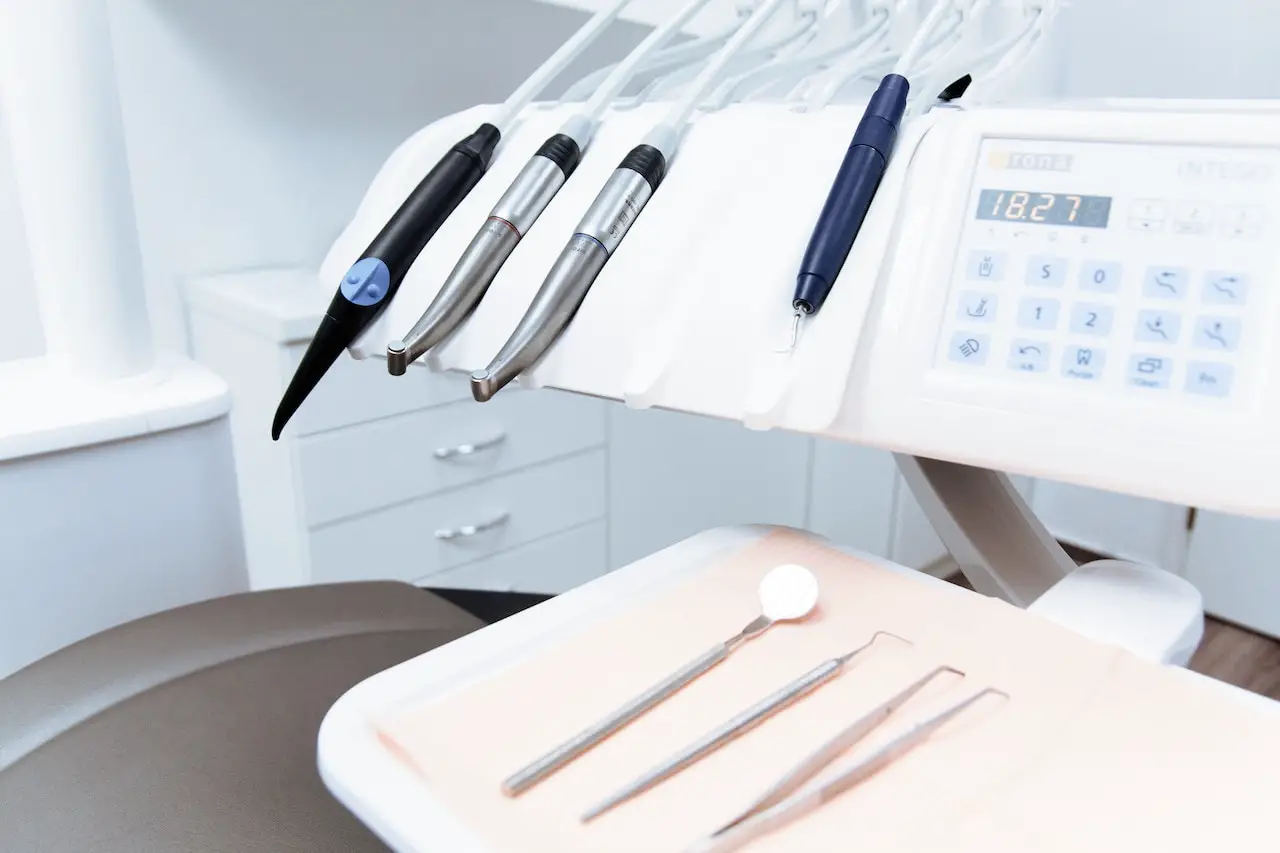
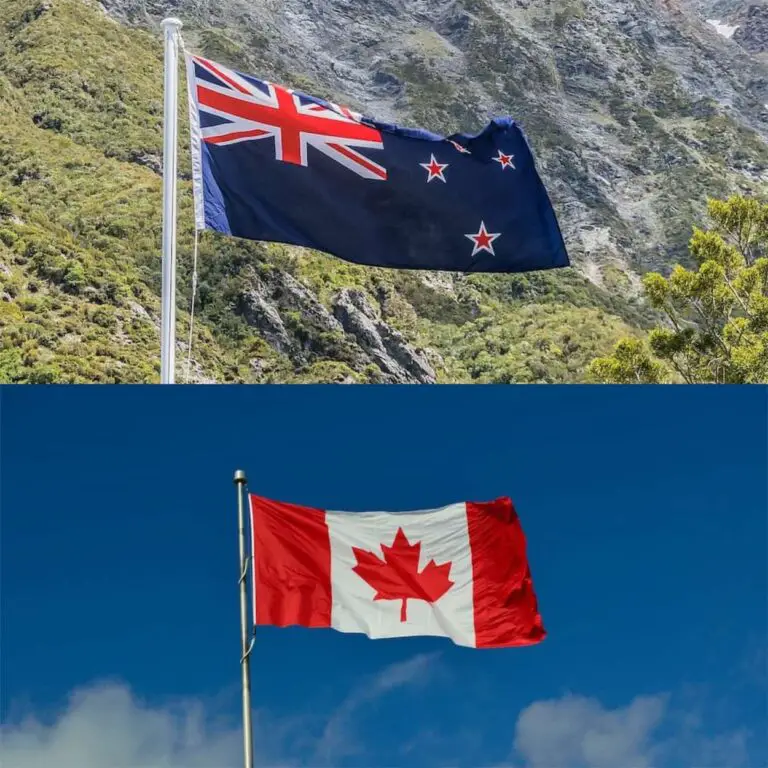
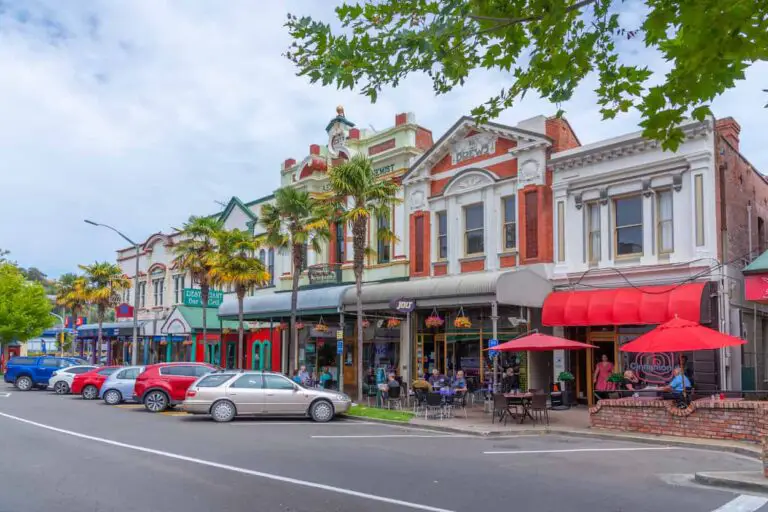
![Cost of Food in New Zealand: How Much To Budget? [2024]](https://simplenewzealand.com/wp-content/uploads/2023/01/Depositphotos_363854088_L-768x512.jpg)

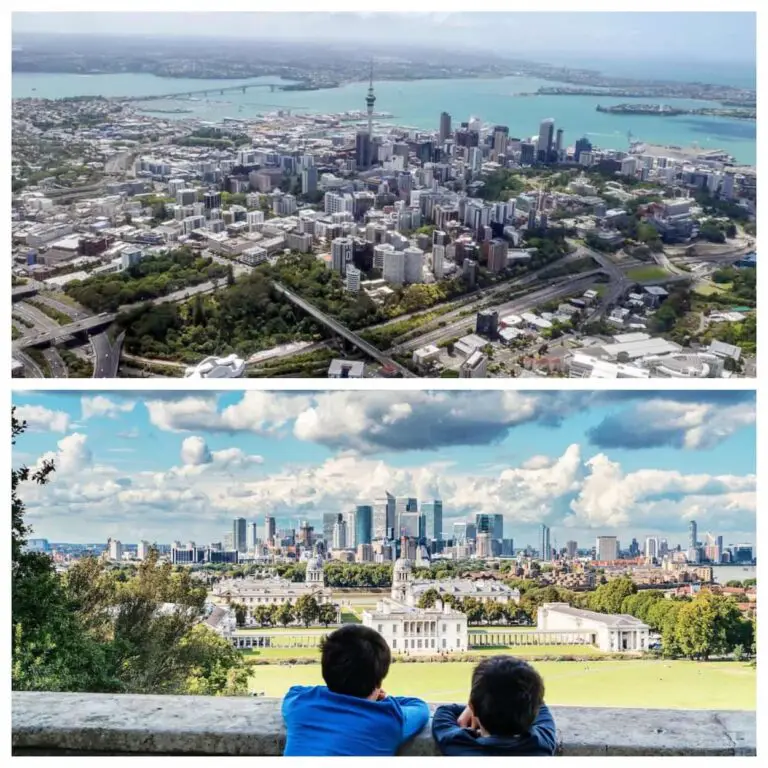
![Cost of Living for An Average Family in New Zealand [2024 Guide]](https://simplenewzealand.com/wp-content/uploads/2023/01/Depositphotos_48225999_L-768x512.jpg)